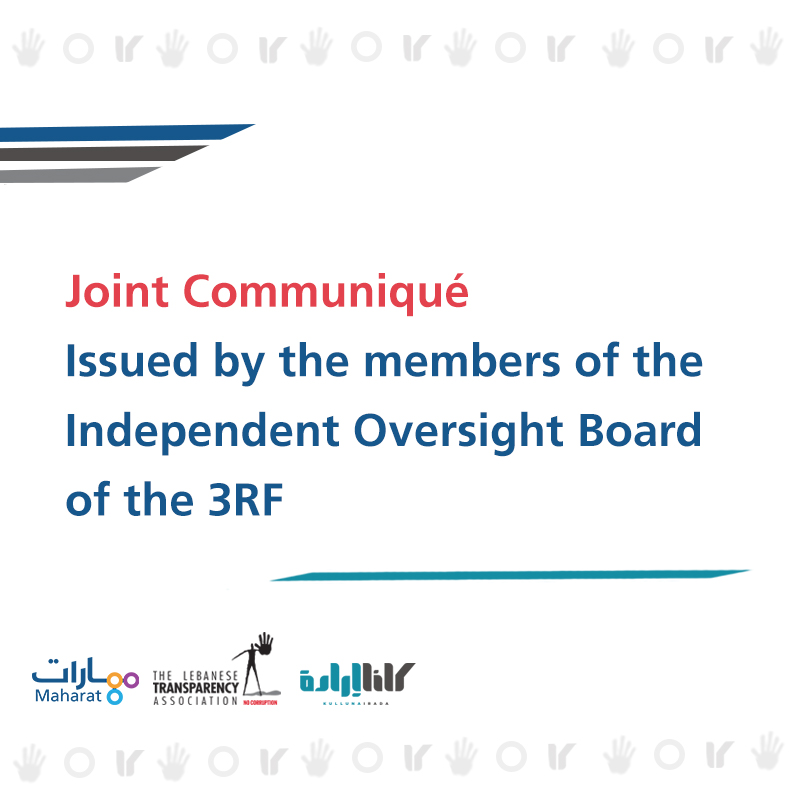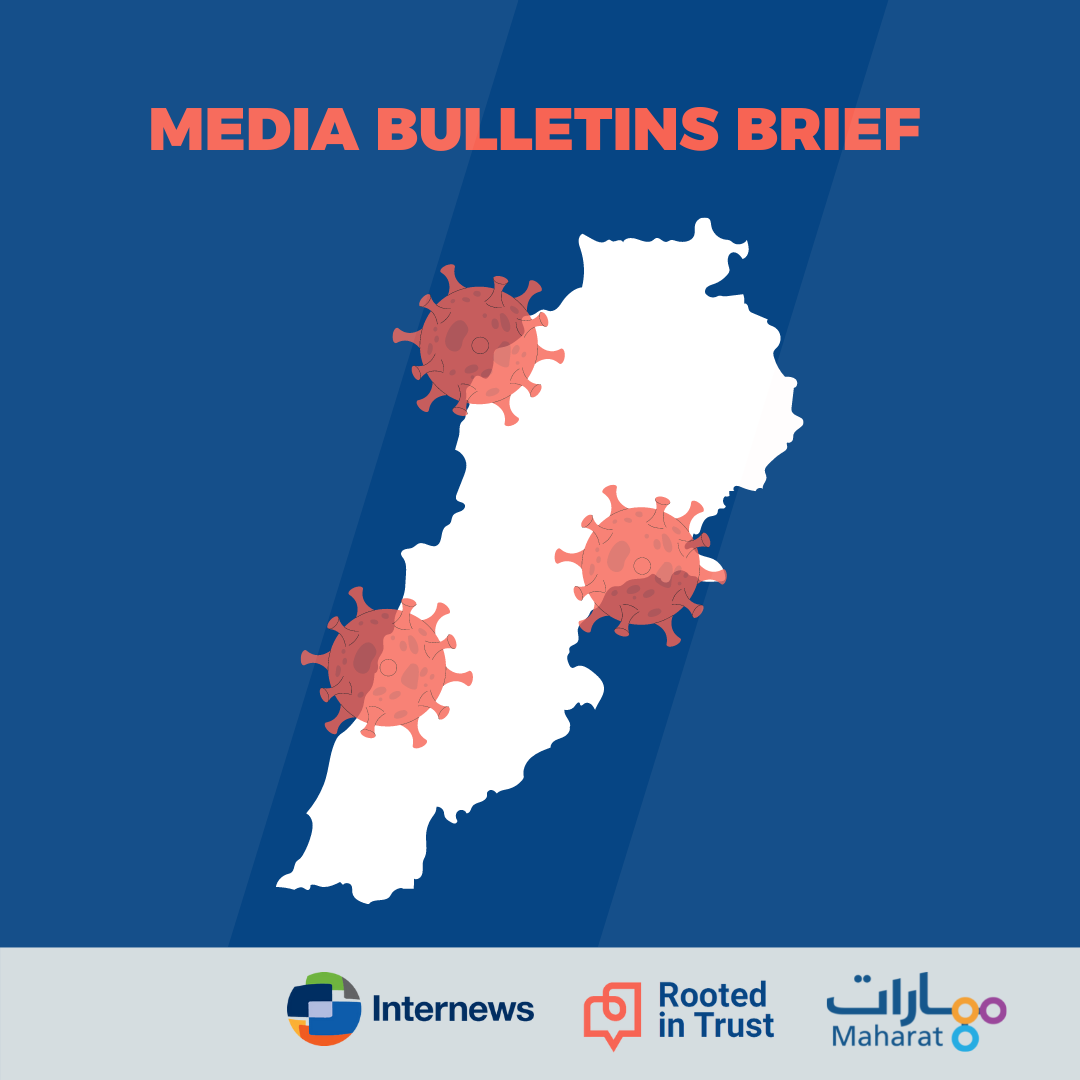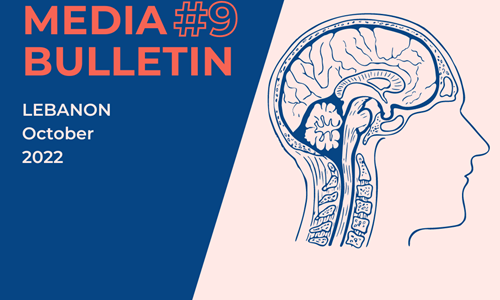
Joint Communiqué Issued by the members of the Independent Oversight Board (IOB) of the 3RF
1- In line with its mandate as an independent mechanism to provide oversight on implementation and financing of the 3RF, the IOB is tasked with the responsibility of holding stakeholders – including government, development partners, and implementing organizations – accountable for overall progress. To fulfill its duty, the IOB’s framework approach to monitoring the 3RF is twofold: strategic monitoring of state reforms (monitoring GoL and monitoring the CGs), as well as strategic monitoring of 3RF operations (monitoring the projects implemented under the 3RF).
2- In the context of its strategic monitoring of 3RF operations, the IOB focuses on monitoring the projects under the 3RF framework based on three specific pillars: 1) the Targeted Outreach to Beneficiaries and Public Communications adopted 2) the Transparency of the Aid, and 3) the Effectiveness of Grievance Mechanisms in place.
3- Amidst Lebanon's most painful economic crisis, the Building Beirut Businesses Back and Better (B5) fund constitutes a great opportunity to support the recovery of select Micro and Small Enterprises (MSEs) affected by the Beirut Blast, and buttress the operations of qualified Microfinance Institutions (MFIs).
4- Being the first project implemented under the 3RF and operated by KAFALAT, the B5 program has been finally activated to disburse in a transparent and timely manner - directly through KAFALAT and specialized and eligible MFIs - grants to MSEs, particularly vulnerable ones, directly affected by the Beirut Blast.
The IOB has been assigned to independently verify and monitor the implementation of the fund’s activities to ensure transparency, fairness, and accountability in the program’s resource allocation.
5- In view of the B5 launch on, Thursday, November 11th, 2021, the IOB calls upon the World Bank and KAFALAT to ensure the adoption of the recommendations below on the B5 operations manual before its launching in the following areas:
a. Selection Criteria and methodology: by adopting clear methodologies and criteria for selection processes and making them publicly available and accessible.
b. Communications: by designing user-friendly and tailored communications to address the targeted groups, taking into account the different capabilities of groups and individuals, in a way that facilitates monitoring by media outlets and CSOs to enhance citizen’s/individual’s engagement.
c. Data Transparency: by adopting the highest standards of transparency as a general rule, notwithstanding privacy rights considerations.
d. Transparency and Privacy Rights: by applying strict policies that respect privacy rights under international human rights law and best practices such as the General Data Protection Regulation and adopting a clear Privacy Policy guaranteeing the eight (08) privacy rights while sharing information with third parties.
e. Grievance and Redressal Mechanisms: by designing an independent mechanism based on a human rights-based approach and survivor-centered approach.
6- Following the launch of the B5, the IOB is committed to conducting thorough monitoring of the aforementioned areas, while strongly advocating for the assurance of safeguards of transparency, effectiveness, and efficiency of the overall process.
7- Nonetheless, the IOB emphasizes that this twofold monitoring approach can only be rendered effective when an adequate level and quality of information is provided. Accordingly, the IOB calls for a timely and reliable flow of information shared by 3RF donors, state institutions, and implementing partners concerned with the 3RF reforms in order to allow for IOB’s effective targeted monitoring thereafter.





